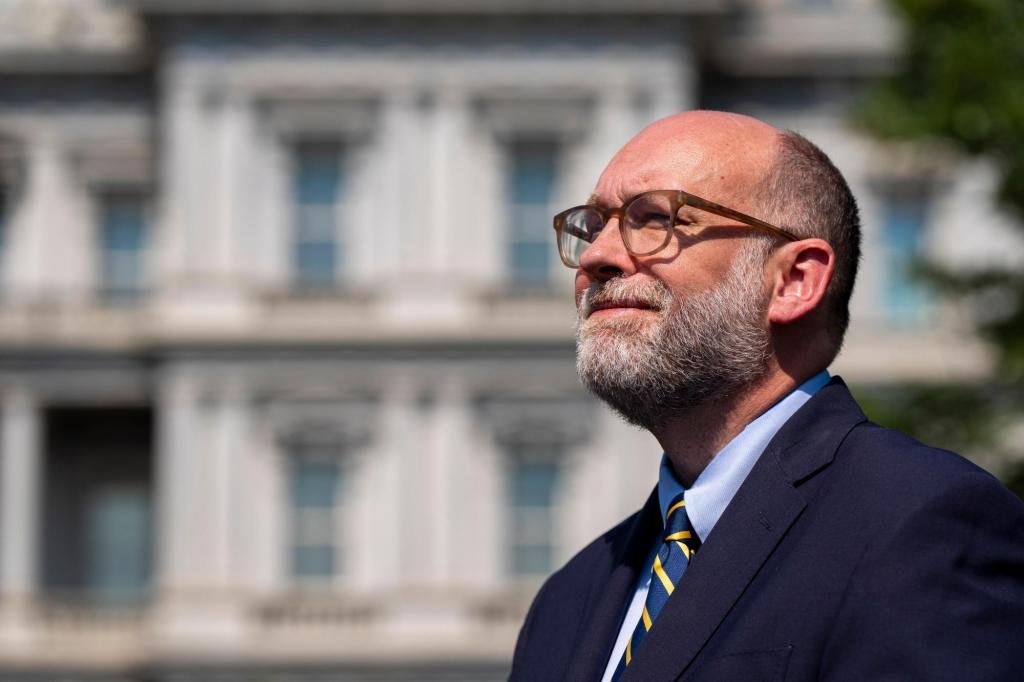Title: The Significant Impact of Trump’s $9 Billion Rescission Package on Public Broadcasting and Foreign Aid
In a historic move, the House of Representatives is poised to approve President Donald Trump’s proposal to reclaim approximately $9 billion earmarked for public broadcasting and foreign aid, a decision that underscores a broader Republican agenda targeting perceived waste in government spending. This package, if approved, would mark a significant shift in congressional spending dynamics, allowing a president to successfully execute a rescissions request—an endeavor not achieved by previous presidents for decades. As the House prepares to sanction these cuts, the implications for public broadcasting and global humanitarian efforts loom large.
Fiscal Responsibility or Political Maneuvering?
House Speaker Mike Johnson (R-La.) advocates for this rescission as a necessary step towards fiscal responsibility. By cutting around $1.1 billion from the Corporation for Public Broadcasting and nearly $8 billion from various foreign aid initiatives, the Trump administration asserts its commitment to curtailing government expenditures. However, this approach has faced substantial criticism, particularly from Democratic leaders who chastise the legislative decision for bypassing traditional bipartisan collaboration. This pivotal move not only threatens essential services but also raises questions about congressional authority and control over fiscal policy—a concern that continues to resonate with critics.
The Impact on Public Broadcasting
The proposed elimination of $1.1 billion for the Corporation for Public Broadcasting could have severe repercussions. This funding is crucial for sustaining over 1,500 locally operated stations that provide public television and radio services across the country. Many Democrats and rural lawmakers emphasize the importance of these stations, which serve vital roles beyond broadcasting by offering emergency alerts during natural disasters, as seen when local broadcasting stations quickly transmitted tsunami warnings following a 7.3 magnitude earthquake in Alaska. Key figures like Sen. Lisa Murkowski (R-Ala.) express the need to protect these essential services, reinforcing the notion that public broadcasting is integral to community safety and information dissemination.
Foreign Aid Cuts: A Broader Concern
In addition to slashing public broadcasting funds, the rescission package proposes cuts to critical foreign aid programs. Notably, $800 million is earmarked for refugee assistance, and $496 million is set to be cut from programs addressing essential needs such as food, water, and healthcare for nations afflicted by natural disasters and conflict. Critics argue that these reductions could weaken America’s global standing, with some lawmakers warning that diminished foreign aid paves the way for enhanced influence from adversaries like China. The ramifications of these cuts extend beyond financial metrics, as they pose serious humanitarian risks for vulnerable populations depending on U.S. support for survival.
The Legislative Clarity Under Scrutiny
The procedural framework through which these cuts are being approved has also raised eyebrows, particularly regarding its circumvention of the typical bipartisan approaches to funding. With this legislation requiring only a simple majority for passage, Republicans, holding a 53-47 majority, can push forward without Democratic support. This shift has potential long-term consequences on future spending negotiations, risking a pattern of unilateral decision-making that could further polarize an already divided congress. Concerns voiced by some Republican senators about inadequate transparency connected to the specific programs facing cuts underscore the need for a more balanced approach to fiscal policy.
Repercussions and Future Prospects
As the White House continues to advocate for fiscal prudence, the reception of this initial rescissions package has the potential to set the stage for future cuts. The director of the Office of Management and Budget, Russ Vought, indicated that subsequent packages may be forthcoming, which could have widespread implications for federal funding structures. This developing narrative around fiscal policy emphasizes a larger trend towards reallocating resources in alignment with partisan objectives.
Conclusion: Weighing Fiscal Cuts Against Societal Needs
The impending approval of Trump’s $9 billion rescission request symbolizes a significant shift in federal expenditures, with ramifications stretching from local public services to international humanitarian aid. As lawmakers weigh the merit of fiscal accountability against the acute needs of vulnerable communities, the path ahead may require a renewed commitment to bipartisanship. As debates over governmental spending continue, the outcomes of these decisions will play a critical role in shaping the future landscape of public broadcasting and foreign aid, impacting countless lives both domestically and globally. Balancing fiscal responsibilities while addressing societal needs remains a daunting challenge that demands careful consideration from the nation’s leaders.





